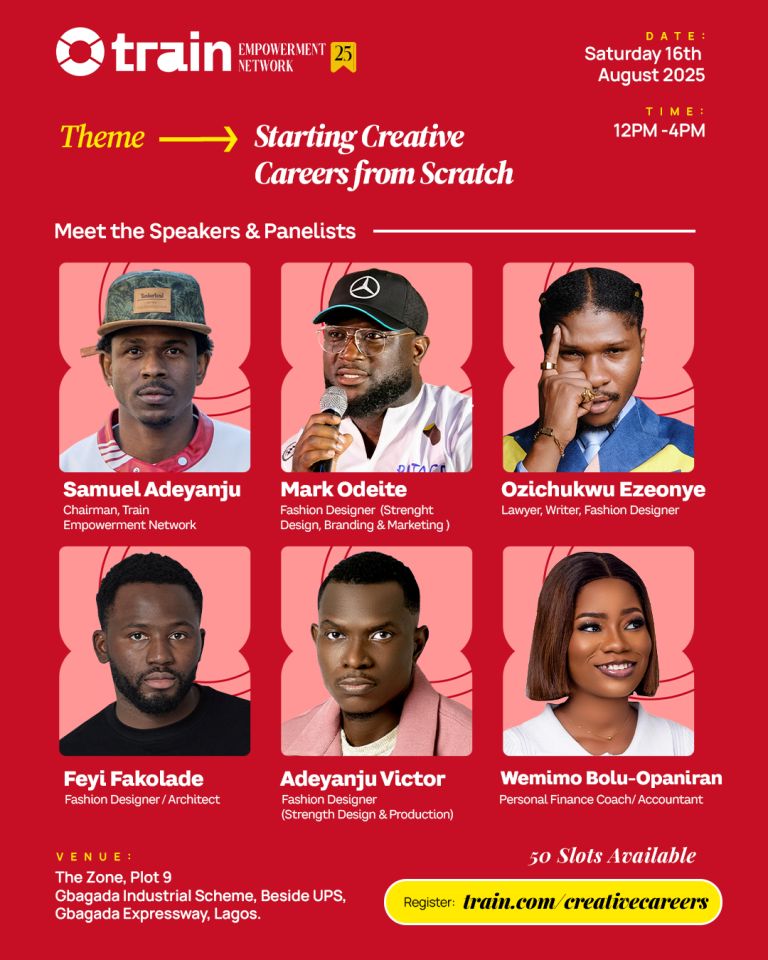General
Google Suspends 5.6 million Advertiser Accounts, Blocks 3.4 billion Ads

By Dipo Olowookere
A new report has revealed that Google has continued to prioritise the safety of its users over money, blocking some harmful advert materials placed on its platform by advertisers.
In the 2021 Ads Safety Report, Google said in the period under review, it removed over 3.4 billion bad ads as part of efforts to ensure that its users are exposed to safe adverts while surfing the internet.
It was further stated that over 5.6 million advertiser accounts were suspended by Google, while 1.7 billion ads were restricted from serving on publisher pages, with broader site-level enforcement action taken on approximately 63,000 publisher sites.
The report also said the firm introduced new tools and resources to help advertisers and publishers protect their brands and campaigns, including a new feature that allows brands to upload lists that can be automatically updated and maintained by trusted third parties.
“We also released several resources to help publishers moderate user-generated content and made targeted improvements to the publisher approval process to detect better and block bad actors,” a part of the report noted.
Business Post Google reports that Google has remained a platform for internet users, advertisers, and publishers. Different people of all ages approach the platform for knowledge and also to showcase their products and services.
This has forced various governments to take action to limit what their citizens are exposed to, as well as the safety of their personal data. Google understands this and has also taken actions to ensure that its users are very safe when on its platform.
In the report, it was disclosed that in the last five years, search interest in private browsing has increased by +60% in Nigeria, +30% in South Africa, and +110% in Kenya, with the figures increasing in 2022.
In October of last year, the company launched My Ad Center globally, allowing anyone to see and control how their data is used to show them ads on Search, Discover and YouTube. This allows users to choose to see less of the ads they don’t want to see (and if they want, more ads they’re interested in), creating a win-win situation for both users and advertisers. With less waste, more satisfied customers, and more effective campaigns, privacy-safe advertising is a win-win for everyone.
In addition to these efforts, Google also announced the Privacy Sandbox initiative, an initiative developed in partnership with the advertising industry that aims to create a more private internet.
It is designed to reduce tracking across websites and apps while still allowing for free access to online content and services.
The initiative involves building new technology to protect personal information, providing alternative options for publishers and developers, and establishing new internet privacy standards.
The Privacy Sandbox for the Web will phase out the use of third-party cookies and limit covert tracking. It will also provide safer alternatives for publishers to use to protect personal data and continue their digital business.
“At Google, we are committed to making the ad-supported web a safer and more private place for everyone in Africa.
“We believe that by giving people control over their data and investing in privacy-safe advertising, we can secure a future for the ad-supported web that benefits everyone,” the Managing Director for Africa at Google, Mr Nitin Gajria, stated.
General
SBM Intelligence’s Jollof Index Sees 153% Surge in Two Years

By Adedapo Adesanya
The cost of cooking a pot of Jollof Rice has surged by 153 per cent over the last two years, the latest Jollof Index released by SBM Intelligence has showed.
The report, titled From Pot to Poverty, reveals that the national average cost of preparing a single pot of Jollof Rice, a staple in many Nigerian homes has jumped from N10,864 in March 2023 to N27,527.85 by June 2025.
The rise in the cost shows how inflation has worsened the consumption ability of people, with the focus on Nigeria and Ghana, two West African counties where the delicacy is very common.
SBM Intelligence tracks the cost of Jollof Rice ingredients including rice, tomatoes, pepper, onions, oil, and seasoning for nearly a decade as a relatable metric for food affordability across Nigeria and Ghana.
The latest findings, however, highlight a sharp divergence between food inflation and the broader Consumer Price Index (CPI), signalling that rising food costs are now being driven by more entrenched structural issues.
According to the report, “Food inflation has decoupled from broader Consumer Price Index (CPI) trends, exposing entrenched supply-side challenges,” it said.
The index reveals wide regional disparities. In Bauchi State, for instance, the cost of Jollof ingredients has increased by over 400 per cent due to bandit attacks, farmer displacement, and drought conditions. The Northeast region recorded some of the steepest inflationary pressures, further exacerbated by insecurity that disrupts agricultural activities and inter-state food movement.
Meanwhile, urban centres such as Lagos and Abuja saw significant increases in food prices tied to the removal of petrol subsidies in 2023, which pushed up transportation costs. In turn, traders have passed these costs on to consumers, further straining already stretched household budgets.
Drawing comparison with Ghana, the report stated that the cost of preparing Jollof Rice rose to GH₵420 during the same period. However, Ghana’s inflation trajectory appears to be moderating. As of June 2025, Ghana’s headline inflation fell to 16.3 per cent, aided by currency stability and consistent macroeconomic policy efforts.
“In Ghana, the Jollof Index closely tracks the national CPI, suggesting a more responsive and effective economic environment,” SBM noted. “Nigeria’s disconnect highlights deeper structural dysfunction.”
It noted that Nigerian families are adapting through bulk buying, reducing meal frequency, and substituting ingredients, adding that for many low-income households, jollof rice is fast becoming a luxury.
The report added that food processors, retailers, and logistics providers face higher costs, lower consumer demand, and operational uncertainties.
The report urged companies to explore regional sourcing, build resilient supply chains, and hedge against further currency shocks.
To address the crisis, SBM called for urgent interventions: restore security in farming regions, fix transport infrastructure, and increase investment in local agriculture. It warns that without coordinated policy responses, Nigeria risks deeper food insecurity and social discontent.
“This report offers a granular analysis of food inflation’s drivers and impacts, providing actionable insights for stakeholders. Prioritising security, infrastructure, agricultural support, and resilient supply chains is paramount to safeguarding food security and ensuring sustainable economic stability across West Africa,” SBM said.
General
Wakamedics, Hub Pharm, Ule Homes Win Female Founders Business Pitch in Lagos

By Modupe Gbadeyanka
The trio of Wakamedic, Hub Pharm Africa and Ule Homes emerged winners of a live pitch session at the Demo Day of the second edition of the Female Founders and Funders Program held on Friday, July 11, 2025, in Lagos.
The event was organised by the Lagos State Employment Trust Fund (LSETF) through its Lagos Innovates program in partnership with AfriGloCal VC and with the support of the GIZ Digital Transformation Centre.
Six small start-ups, Ule Homes, House of Zibima, Hub Pharm Africa, Wakamedics, Varsity Africa, and Autogirl, participated in the business pitch, demonstrating creativity, market insight, and business resilience.
However, Wakamedics emerged as the overall winner, with Hub Pharm Africa and Ule Homes taking first and second runner-up positions, respectively, and all getting cash prizes to support the growth of their ventures.
The Female Founders programme had 17 female startup entrepreneurs and 20 aspiring female funders going through an eight-week journey through workshops, mentorship, and peer-to-pear learning to unlock access to funding opportunities.
At the event to conclude the initiative, the Head of Startups at Lagos Innovates, Mr Ifeoluwa Martins, said, “Over the past eight weeks, we’ve seen remarkable resilience, bold ideas, and a commitment to innovation further solidifying Lagos Innovates’ role as a catalyst in building a robust startup ecosystem. This reinforces LSETF’s commitment to showcase innovation and close the gender gap in technology and investment.”
Also, the Managing General Partner at AfriGloCal VC, Ms Mope Abudu, noted that the programme creates a “strong pipeline of women who are ready to lead, invest, and scale businesses that solve real problems.”
The Executive Secretary of LSETF, Ms Feyisayo Alayande, said, “We must keep creating an ecosystem that backs women, builds women, and bets on women. At LSETF, we remain fully committed to providing opportunities for them to thrive, scale, and shape the future of Lagos and beyond.”
The Technical Advisor on Digital and Entrepreneurial Skills for Women at GIZ Digital Transformation Centre, Gbeke Oshinowo, stated that, “Each of these women is rewriting the narrative of what’s possible for women in technology and business in Nigeria, and we are proud to support programs that unlock this kind of transformation.”
The First Lady of Lagos State, Mrs Ibijoke Sanwo-Olu, represented by Oyinkan Osiyemi, submitted that, “When women are given the tools, mentorship, and opportunities, they not only grow, they uplift communities and shape the future.”
This view was corroborated by the acting Board Chair of LSETF, Mrs Adepeju Adebajo, who reiterated that, “When women are involved in business, they don’t just participate, they transform and innovate. Their ideas, resilience, and leadership bring new solutions to the table and drive meaningful change across industries.”
The Secretary to the Lagos State Government, Mrs Bimbola Salu-Hundeyin, on her part, remarked that, “Empowering women is smart economics and a catalyst for progress. Programs like this align with our vision to create opportunities for women to thrive in business, technology, and beyond. Partnerships between the public and private sectors will remain central to achieving these goals.”
General
Train Network Targets Re-Education of Nigerian Youths for Creative Sector

By Adedapo Adesanya
Train Network, a creative-focused movement, has launched a bold initiative aimed at re-educating and upskilling young Nigerians for the creative sector.
The initiative, which combines hands-on training, mentorship, and entrepreneurial support, is designed to equip participants with relevant knowledge and tools to thrive in today’s dynamic creative industry.
With Nigeria battling unemployment and a rising youth population, Train Network says the initiative will seek to reignite innovation among Nigerian youths.
According to the Chairman of the initiative, Mr Samuel Adeyanju, known as Train, with Nigeria boasting one of Africa’s most vibrant youth populations and creative markets, it is important to reposition young people for global competitiveness.
“We have a vibrant population that is not on the right path, there are many opportunities ranging from fashion and film to music, photography, graphic design, and content creation that we can train them on. If we begin with 50 now, I am sure by subsequent editions, we would have hit 500 and more,” he said.
He added that Train Network will seek to close the gap between raw talent and industry-standard skills, which remains a barrier for many aspiring creatives.
The event will feature guest speakers and panelists, including Mark Odiete, Ozichukwu Ezeonye, Feyi Fakolode, Victor Adeyanju, Wemimo Bolu-Opaniran, among others.
Also commenting on the programme, Mr Victor Adeyanju, co-founder and fashion design maverick, noted that many Nigerian youths have passion and creativity but lack access to structured guidance, training resources, and platforms that can nurture their potential into viable careers.
“We’re not just offering training, we’re re-educating minds to think professionally, strategically, and creatively,” he said.
The event will host a masterclass from these seasoned industry professionals, a panel discussion, and opportunities for participants to build relationships for furthering career advancements.
Train Network plans to roll out the initiative across major Nigerian cities and further expand to the African continent in the future.

-

 Feature/OPED5 years ago
Feature/OPED5 years agoDavos was Different this year
-
Travel/Tourism9 years ago
Lagos Seals Western Lodge Hotel In Ikorodu
-

 Showbiz3 years ago
Showbiz3 years agoEstranged Lover Releases Videos of Empress Njamah Bathing
-

 Banking7 years ago
Banking7 years agoSort Codes of GTBank Branches in Nigeria
-

 Economy2 years ago
Economy2 years agoSubsidy Removal: CNG at N130 Per Litre Cheaper Than Petrol—IPMAN
-

 Banking2 years ago
Banking2 years agoFirst Bank Announces Planned Downtime
-

 Sports2 years ago
Sports2 years agoHighest Paid Nigerian Footballer – How Much Do Nigerian Footballers Earn
-

 Technology5 years ago
Technology5 years agoHow To Link Your MTN, Airtel, Glo, 9mobile Lines to NIN













